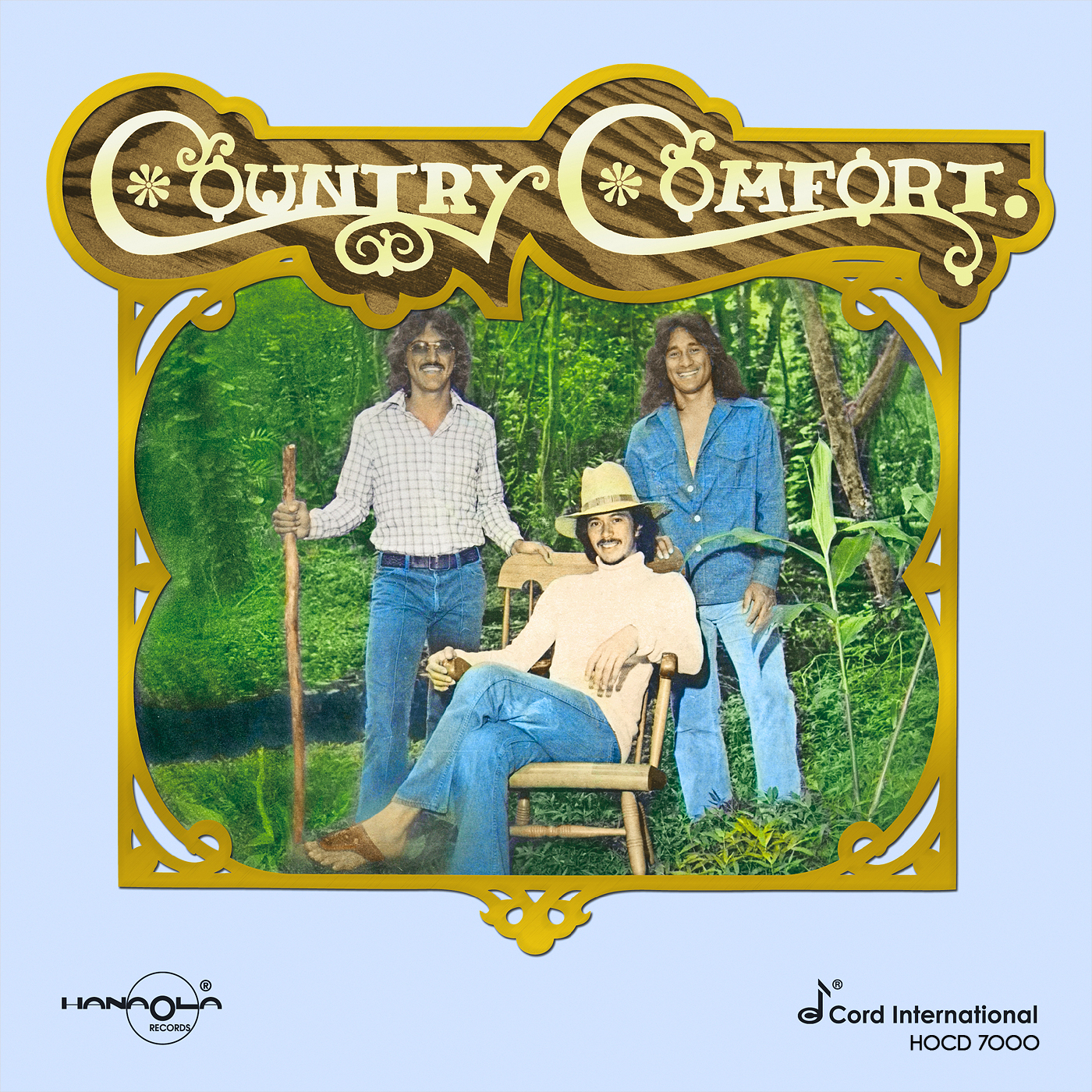
 |
 |
| Download CD NOW |
Listen on YouTube |
Seventies Classic Collector Series
Brings Back Sweet Memories
|
Country Comfort came out of Waimanalo in the early Seventies, recorded two albums, and self-destructed within a few short years. In that time they helped change the sound of contemporary Hawaiian music. They didn't play tourist music and they didn't play music that was considered Hawaiian. They were the vanguards of a new wave of music - locals of the baby boomer generation who sang in English instead of Hawaiian. Who could have known that their music would redefine contemporary music in Hawaii forever and that their name would become synonymous with the time? |
FIVE STARS. Brings back memories of growing up in Hawaii in the seventies Great album for any collector of music from Hawaii artists from this era. |
Country Comfort came out of Waimanalo in the early Seventies, recorded two albums, and self-destructed within a few short years. In that time, they helped change the sound of contemporary local music.
Country Comfort was one of several young acts of the day whose music was much closer to mainstream Top 40 acoustic rock than to the Hawaiian folk traditions personified by Gabby Pahinui or the controversial modern Hawaiian arrangements of Sunday Manoa. Nor did their music come from the hapa-haole traditions popularized since the Thirties by Hawaii Calls, Hollywood musicals, Arthur Godfrey and Alfred Apaka.
In short, they didn’t play “tourist music” and they didn’t play music that was considered “Hawaiian”.
Like Cecilio & Kapono and Kalapana, Country Comfort sang and wrote in English. They were the vanguard of a third wave — “locals” of the “baby boomer” generation who sang in English rather than Hawaiian. They might write or sing songs that drew on their island heritage but few of their originals mentioned Hawaii. Their musical inspiration came from the folk, folk-rock and blues-rock artists of the Mainland; their primary instrument was the guitar. Much of their non-original material came from the American pop charts.
The group had already gone through some personnel changes when Jimmy Freudenberg, Billy Kaui, Chuck Lee, Randy Lorenzo and Eugene Matsumura recorded the first Country Comfort album, “We Are The Children.” Country Comfort had become a sextet - Steve Wofford had replaced Lorenzo on bass, and Gaylord Holomalia added on synthesizer - when the group went back into the studio to record this album.
The results sound like the band was torn between maintaining the extremely successful sound of its first album and experimenting with a country-rock posture. The band’s pop chart preferences were reflected in the Dan Fogelberg composition, “Changing Horses,” but most of the songs came from local writers - Liko Martin’s “End Of The Line,” two songs by new member Steve Wofford and another by Phil Keat.
Freudenberg and Kaui also contributed new songs. The most memorable of all - Kaui’s “Pretty Girl” and the Kaui-Freudenberg collaboration, “Hello Waimanalo” - happen to be the closest to the acoustic sound of their first album.Drugs - alcohol, marijuana, “reds” and heroin - destroyed Country Comfort early in 1976. Little was heard from Freudenberg and Lee after that. Kaui had turned his life around, successfully completed a detox program, and embarked on a promising solo career when he died of a brain hemorrhage early in 1978.
Lorenzo and Wofford both contributed to the early success of the Peter Moon Band; Lorenzo also played with Gabby Pahinui, C & K and Keola & Kapono Beamer - Wofford recorded with Phil Keat as the Wofford-Keat Band. Holomalia became a highly regarded musician, studio session man and recording studio engineer, and eventually became a member of Kalapana.

| HOCD 7000 - Country Comfort II |
|





